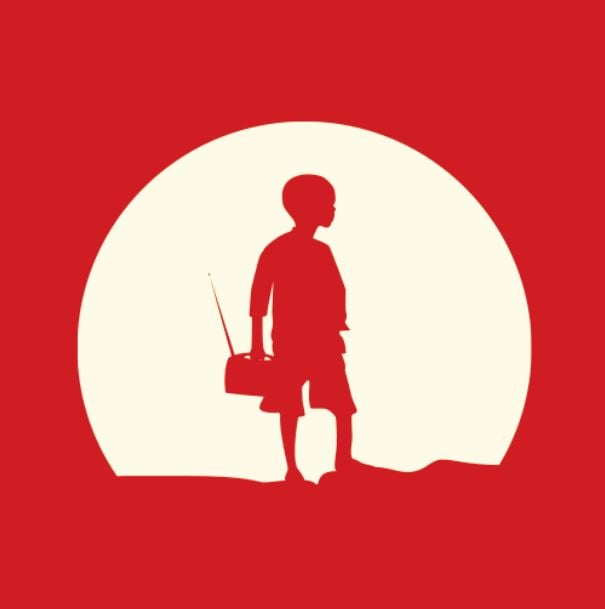Listen to the article
Radio Dabanga Offers Critical Lifeline for Sudanese During Conflict
In the midst of Sudan’s ongoing conflict, a remarkable independent radio station has emerged as a crucial information source for millions of civilians navigating daily dangers. Radio Dabanga, broadcasting from Amsterdam beyond the reach of government censorship, has become an essential lifeline providing trustworthy news to approximately 5 million weekly listeners within Sudan.
Founded in 2008 by Sudanese media professionals in exile with support from Dutch NGO Free Press Unlimited, Radio Dabanga was initially established in response to the 2003 Darfur war. The station takes its name from the traditional earthenware vessels Darfuri families use to preserve food and valuable items during times of scarcity – a fitting metaphor for how the station now safeguards critical information.
“Reliable information has become as valuable as food and water in Sudan’s conflict zones,” explains a regular listener in Khartoum who asked to remain anonymous. “Knowing which roads are safe or where fighting has intensified can literally save lives.”
Radio Dabanga’s reach extends beyond traditional shortwave radio broadcasts to satellite television, online platforms, and social media, allowing it to circumvent the information blackouts that often accompany conflict zones. Its daily updates about fighting, health hazards, and humanitarian aid distribution enable civilians to make informed decisions about evacuation routes, safe havens, and resource availability.
What distinguishes Radio Dabanga from many international news outlets covering Sudan is its deeply rooted connection to local communities. The station operates through an extensive network of civilian reporters who live among the population, providing firsthand accounts of developments that would otherwise go unreported.
“We receive approximately 100 calls and 1,000 WhatsApp messages daily from people across Sudan,” says a Radio Dabanga editor speaking from their Amsterdam headquarters. “This civilian-sourced information creates a comprehensive picture of what’s happening across different regions, especially in areas where international journalists cannot access.”
This reporting model comes with significant risks. Civilians documenting events face potential arrest, assault, or worse if discovered by warring factions. The station continually navigates challenges regarding adequate compensation for their in-country reporters and concerns about their safety. Despite these obstacles, Radio Dabanga’s information network remains resilient and committed to their mission.
Media experts point to Radio Dabanga as a crucial counterforce to the propaganda and misinformation that typically proliferate during armed conflicts. By maintaining editorial independence and emphasizing fact-based reporting, the station helps prevent the spread of rumors that could further inflame tensions or endanger civilians.
Beyond immediate survival information, Radio Dabanga serves another vital function: documenting potential war crimes and human rights abuses. The station’s continuous reporting creates a contemporaneous record that may eventually support accountability efforts and transitional justice initiatives when the conflict subsides.
“What Radio Dabanga does is preserve the civilian perspective amid the chaos of war,” notes a regional media analyst specializing in conflict reporting. “When military and political factions control most information channels, having an independent voice that prioritizes humanitarian concerns becomes essential for both immediate survival and long-term reconciliation.”
As Sudan’s crisis continues with limited international media attention, Radio Dabanga represents a model of community-centered journalism that bridges the gap between global information systems and local realities. Its success demonstrates how diaspora communities, working with international supporters, can create effective information lifelines when traditional media infrastructure collapses.
For millions of Sudanese navigating daily uncertainty, Radio Dabanga offers more than news – it provides a consistent reminder that their experiences matter and their stories are being told to the world, even as the conflict rages on.
Fact Checker
Verify the accuracy of this article using The Disinformation Commission analysis and real-time sources.




8 Comments
Radio Dabanga’s role as a trusted and uncensored information source is crucial. In a country like Sudan, where authoritarian control often stifles independent media, this station’s ability to broadcast beyond government reach is truly remarkable.
Agreed. The fact that Radio Dabanga can operate from outside Sudan’s borders, while still reaching millions of listeners inside the country, is a testament to its resilience and importance. Maintaining this critical link to the outside world is vital.
It’s encouraging to see that Radio Dabanga has been able to reach such a wide audience of 5 million weekly listeners within Sudan. This speaks to the immense value the station provides in a time of crisis and conflict.
Radio Dabanga sounds like an invaluable resource for Sudanese citizens during these turbulent times. Access to reliable, uncensored information can truly be a matter of life and death in conflict zones. I hope this critical lifeline can continue its important work.
Agreed. Independent media outlets like Radio Dabanga play a vital role in keeping the public informed, especially when authoritarian governments try to control the narrative. I hope the station can continue broadcasting safely and effectively.
The analogy of Radio Dabanga as an ‘earthenware vessel’ preserving valuable information is a powerful one. In times of scarcity and conflict, access to reliable news can indeed be as essential as food and water for survival.
As a key source of trusted news and information, Radio Dabanga must be protected. In the midst of Sudan’s ongoing turmoil, this station’s ability to operate freely and distribute vital updates could make all the difference for vulnerable communities.
Absolutely. Preserving the integrity and operational capacity of Radio Dabanga should be a priority for the international community. Ensuring this lifeline remains open and accessible could have profound humanitarian implications.